In today’s digital age, the significance of website security cannot be overstated, especially for WordPress users. WordPress, a popular content management system (CMS) that powers a vast portion of websites globally, is often targeted by hackers due to its widespread use. For Australian businesses, bloggers, and digital creators, securing their WordPress site is paramount to safeguarding their online presence, reputation, and data. This article delves into the importance of WordPress security measures and offers a comprehensive guide on how to implement them effectively.
Understanding the Importance of WordPress Security
Protecting Your Digital Asset
For many, a WordPress site is more than just a platform; it’s a digital asset. It can be a significant source of income, a brand’s online presence, or a repository of valuable information. A security breach can lead to financial losses, data theft, and irreparable damage to a brand’s reputation. In the Australian context, where e-commerce and digital businesses are booming, the impact of such breaches can be even more pronounced.
Compliance with Australian Data Protection Laws
Australia has stringent data protection laws, such as the Privacy Act 1988, which includes the Notifiable Data Breaches (NDB) scheme. This scheme requires organizations to notify individuals and the Office of the Australian Information Commissioner (OAIC) about significant data breaches. Implementing robust WordPress security measures ensures compliance with these laws and protects against legal and financial repercussions.
Preventing Malware and Cyber Attacks
WordPress sites are frequently targeted by malware and cyber-attacks. These can range from brute force attacks, where attackers attempt to gain access by guessing passwords, to more sophisticated methods like SQL injection and cross-site scripting (XSS). Effective security measures can prevent such attacks, protecting your website and its users from harm.
Implementing WordPress Security Measures
Implementing comprehensive WordPress security measures involves a multi-faceted approach. Here’s how you can secure your WordPress site:
Regular Updates
WordPress frequently releases updates for its core software, themes, and plugins. These updates often contain security patches to fix vulnerabilities. Keeping your WordPress site, including its themes and plugins, updated is critical for security. Set aside time regularly to check and apply updates or enable auto-updates for peace of mind.
Strong Passwords and User Permissions
Use strong, unique passwords for your WordPress admin area, database, and FTP accounts. Consider using a password manager to generate and store complex passwords. Additionally, limit the number of users who have access to your WordPress admin area and ensure they have appropriate roles and capabilities. This minimises the risk of internal threats and accidental changes that could expose your site to vulnerabilities.
Secure Hosting
Choose a hosting provider that emphasises security. Look for features like regular backups, firewall protection, and malware scanning. Many Australian hosting providers offer plans tailored to WordPress, with security measures specifically designed for the platform.
SSL Certificate
An SSL (Secure Socket Layer) certificate encrypts data transmitted between your website and its visitors, protecting sensitive information like login details and credit card numbers. Most browsers also flag sites without SSL as ‘not secure’, which can deter visitors. SSL certificates are a must for establishing trust and security.
Security Plugins
WordPress has a vast ecosystem of plugins, including those designed for security. Security plugins can offer a range of features, from firewalls and malware scanning to login attempt limits and security hardening. Popular security plugins include Wordfence, Sucuri, and iThemes Security. Choose one that fits your needs and configure it according to best practices.
Regular Backups
Backups are your safety net in case of a security breach or data loss. Regularly back up your WordPress site, including its database and content. Ensure backups are stored in a secure, off-site location. Many plugins and hosting providers offer automated backup solutions, making this process easier.
Customise Login URLs
By default, the WordPress login page can be accessed via wp-login.php or wp-admin, making it an easy target for brute force attacks. Customising your login URL can add an extra layer of security by obscuring the entry point to your admin area.
Disable File Editing
WordPress allows administrators to edit plugin and theme files directly through the admin panel. Disabling this feature in the wp-config.php file can enhance security by preventing attackers from modifying these files if they gain admin access.
Implement a Web Application Firewall (WAF)
A Web Application Firewall (WAF) can block malicious traffic before it reaches your site. It acts as a gatekeeper, filtering out harmful requests based on predefined security rules. This can protect your site from various attacks, including DDoS attacks, SQL injection, and cross-site scripting (XSS).
Educate and Train
Lastly, educate yourself and any team members about basic security practices. Recognising phishing attempts, using secure connections, and understanding the importance of regular updates can go a long way in maintaining the security of your WordPress site.
Conclusion
Securing your WordPress site is not just a one-time task but
an ongoing commitment. As cyber threats evolve, so should your approach to website security. Implementing the measures outlined above is a significant step towards protecting your WordPress site from a wide array of cyber threats. However, security is a dynamic field, and staying informed about the latest threats and security best practices is crucial.
For Australian WordPress site owners, the importance of website security extends beyond protecting personal and financial data—it’s about maintaining your digital sovereignty, ensuring compliance with national data protection regulations, and preserving the trust of your customers and visitors. The consequences of neglecting website security can be severe, ranging from data breaches that compromise user privacy to financial and reputational damage that can take years to recover from.
In conclusion, WordPress security should be a top priority for anyone running a website on this platform. By regularly updating your site, enforcing strong passwords, choosing secure hosting, implementing an SSL certificate, using security plugins, making regular backups, customising login URLs, disabling file editing, implementing a WAF, and staying educated about security practices, you can significantly reduce your vulnerability to cyber threats.
Remember, security is not just a technical issue but a crucial aspect of your online presence that affects every user who visits your site. By taking proactive steps to secure your WordPress site, you’re not only protecting your digital asset but also contributing to a safer, more secure internet for everyone.

